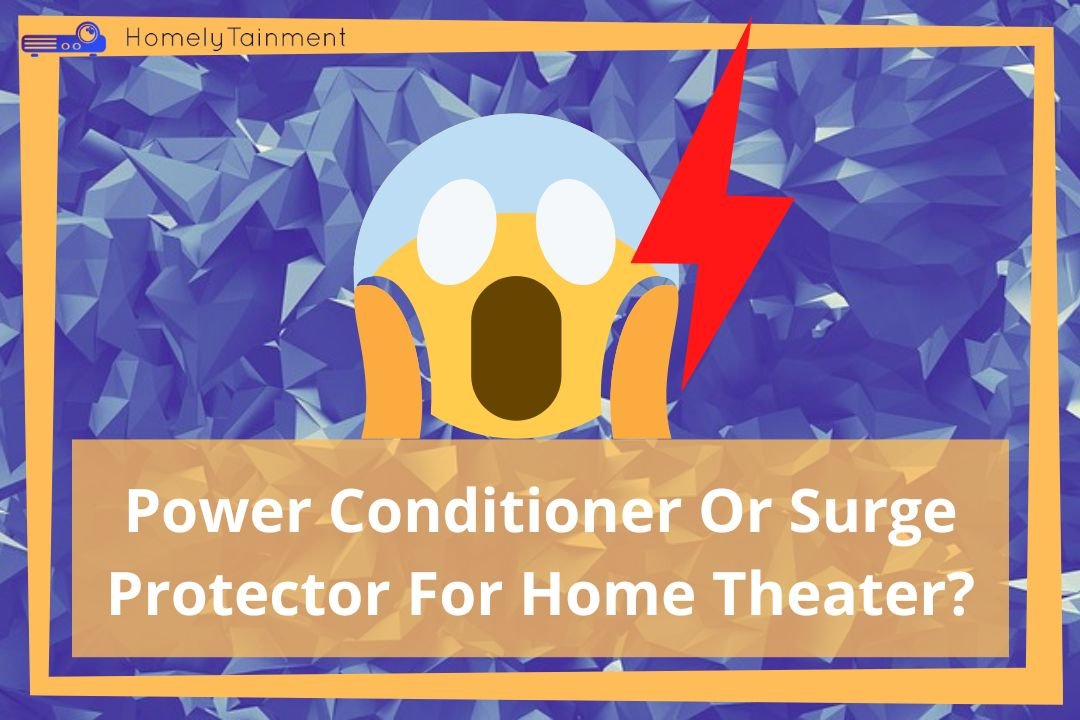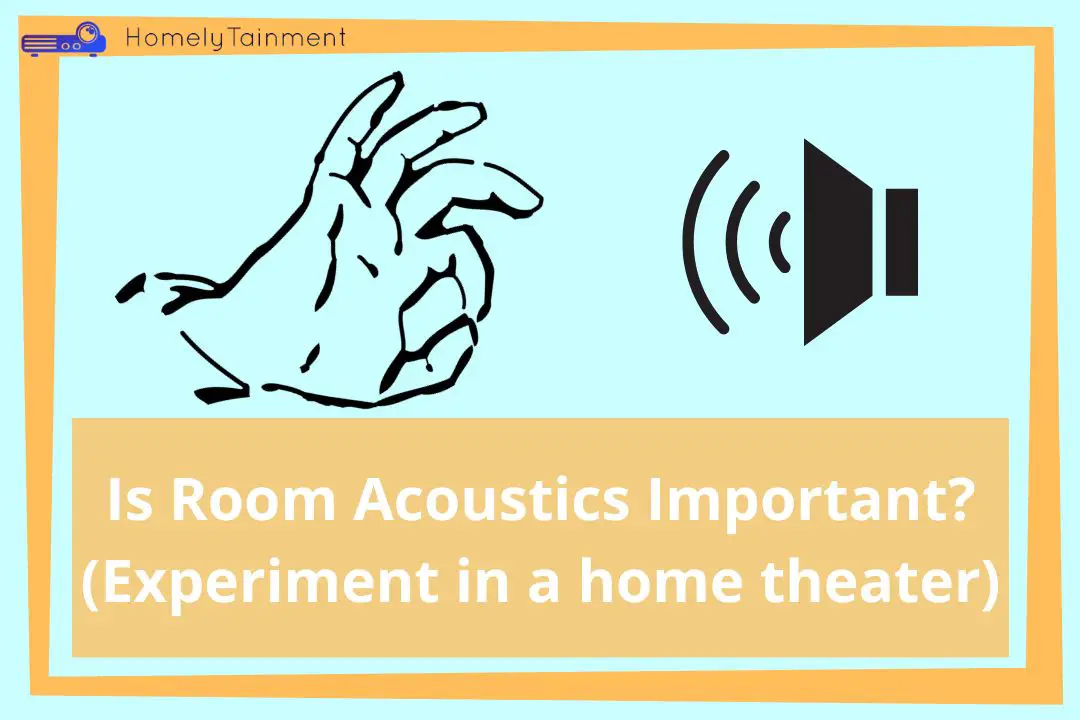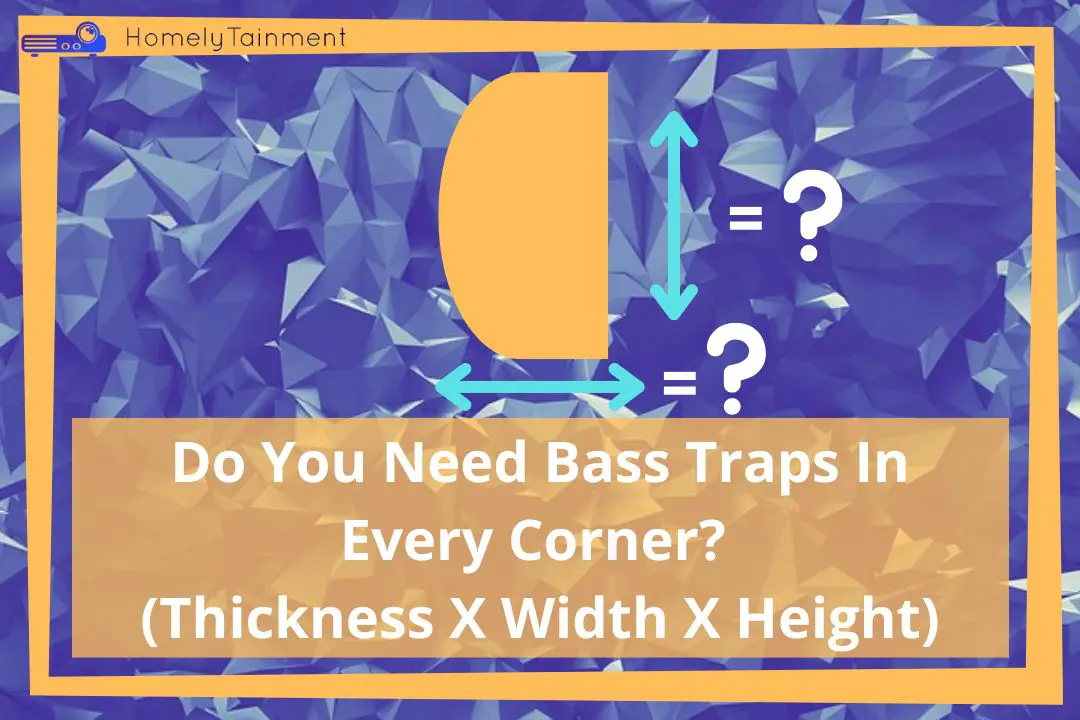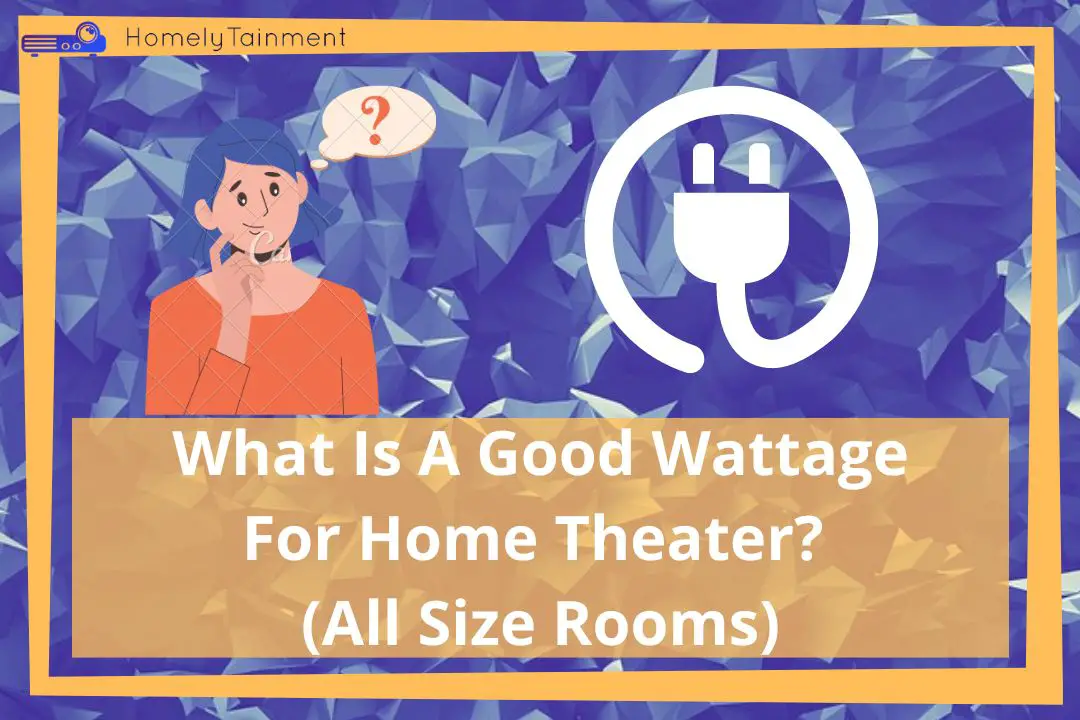
Homelytainment earn commissions (at no additional cost to you) if you purchase products from retailers after clicking on a link from our site.
These are the two things that deal with the same power but have slightly different functions. That’s why many newbies to this topic are confused about which one to use. So, power conditioner vs surge protector, what is right for home theater?
At A Glance: The power conditioner is the right thing because it can protect the AV devices from surges along with protection from sags and electric/magnetic interference and clean the voltage from frequency noises, while the surge protector can only protect from surges.
Stick around, so we can compare both of them and finally conclude that we really need them in our home theater. Don’t forget to check the results of the poll at the end of this article that I have conducted in a Facebook group. You will know what others are using. I will also be answering the most frequent questions asked related to this topic.
Before comparing them and jumping into the verdict. Let’s understand each one briefly.
What does a surge protector do?
The electricity fluctuates a lot when it reaches your house. The fluctuations may increase the voltage or decrease it. However, the surge protector can only protect you from the increase in voltage.
The voltage can be increased by storms or a fault in the grid. These surges can burn your home theater devices. The surge protector diverts these surges to the ground and doesn’t let them reach the devices.
In this way, they save your devices from getting fried.
Know which is the best wire material for the audio/video experience. You will know about the best in my this guide.
What power conditioner does?
The power conditioner protects you both from the spike and dip in the voltage. High-quality power conditioners have a voltage regulator in them.
The regulator in these conditioners works like this. The stable voltage in the United States & Canada is 120 volts, and in the EU it is 230 volts. All the appliances work fine on this voltage.
The voltage in the case of the USA & Canada should not go higher than 130 volts and should not go lower than 98 volts.
The regulator will step up the voltage when the supplied voltage is lower and will step down the voltage when the supplied voltage is higher. In this way, it will supply stable voltage to this home theater system. Due to this, the devices will live longer. But don’t settle down for just longevity; it has many more benefits.
In cheaper power conditioners, there is a feature of AVM (automatic voltage monitoring). Almost every conditioner has this feature if they don’t provide the voltage regulation feature.
In this feature, the conditioner will stop sending the voltage to the devices if it is higher or lower than the hazard levels.
Along with the voltage regulation and monitoring. The power conditioner removes electric and magnetic interference from the current in case there are close electronic devices connected without your knowledge. Also, it filters out the frequency noises from the electric current. We will come to this later in the comparison section.
Keep reading to know the detailed comparison and some amazing features of them. In the final verdict, I will be revealing the fact whether we really need them in our system or not.
Know which gauge wire to use for home theater. I have compared each size in a table.
Power Conditioner Vs Surge Protector. Comparing them for the usage of home theater
| Device | Surge & Sags Protection | Electric Current Refining | Fluctuation Regulation | Effect on Audio | Ratings |
|---|---|---|---|---|---|
| Surge Protector | Protect against surges & not sags | No | No | No but may be negative in a few cases | 5/2 |
| Power Conditioner | Yes, both | Yes it refines | Yes it regulates | Element noise from the audio | 5/5 |
Surge & Sags protection
The spikes in the voltage are called the surges, and lower voltages that are hazardous are called sags. The surge protector only protects you from the surges in voltage, but can’t protect you from sags.
The power conditioner has an intelligent feature of AVM. This feature can protect you from both of them. It shut down the supply of the voltage going to the devices. It will not pass through it if it is very high or low.
Here the power conditioner is the winner.
Electric current refining
The current changes a lot and contributes to the frequency of noises. These noises will be transferred further to the devices and will be output by the speakers. Along with these, the current should also be freed from interferences. These interferences will contribute to the (humming) sound.
The surge protector will pass through the current without filtering these impurities, while the power conditioner can refine the current from these interferences.
The power conditioner is the winner here too.
Know which type of connectivity to use for the best experience. I have compared the banana plugs, bare wires, and spades in this guide.
Fluctuation Regulation
The surge protector can’t have a voltage regulator in it. Because such technology can’t be fitted in a small body like the surge protector.
The power conditioner will regulate the fluctuations in the voltage and will deliver a stable voltage to your home theater devices. The stable voltage in the USA & Canada is 120 volts, and your devices will get the exact voltage.
But make sure the power conditioner that you are going to buy should have this regulation feature in it. They will mention it in the product listings.
Effect on the Quality of the audio & video
Those surge protectors have a long wire for the power supply. These should be investigated. If the wire is made of pure copper then it is good, otherwise, this wire will mess up the sound quality of the system. Make sure you buy the best quality surge, protectors.
But apart from the wire. If the wire is of good quality, still the surge protector can stop the interferences and frequency noises by traveling to the speakers. The humming and buzzing can be heard in the sound. You can experiment with it by muting the speakers. You will still hear the humming in the sound.
This humming sound vanishes after connecting the power conditioner. The sound feels fuller, detailed with tight bass after that. You won’t experience this with a surge protector.
Along with audio, the video feels sharp with the power conditioner. But it can be sensed by videophiles and newbies/intermediates will find it hard to notice the upgrade in the video quality.
Also, if there is a large electric appliance such as a microwave or dishwasher is turned on or turned off. Its effect will be felt in the audio of the theater system, but it won’t be felt when the system is powered by the power conditioner.
Cable Management
The power conditioner will be tucked into the cabinet, and you don’t need to care about cable management. The plugs will also be saved from the kids, toddlers, and pets to step on them or make them loose.
But you will have to deal with these minor issues with the surge protectors.
Know about the 13 creative ways to hide home theater speaker wires. I have added the genius ones.
Final Verdict: Do you need it for the home theater?
In-Short: You need a power conditioner if you are serious about the high audio quality and longevity of your home theater system. Along with high audio quality, many power conditioner brands provide a $50k cover for your devices if they are damaged from a surge or sags when connected to their conditioner.
And avoid getting a surge protector, but if you still want to go with a surge protector then buy those that are having plugs and not wires for the power supply connection and are UL certified.
What will you use for the safety of your theater equipment? (FB Poll)
| Options | Stats |
|---|---|
| Power Conditioner | 53% |
| Surge Protector | 35% |
| None | 12% |
Observe the results of the poll and make better decisions for yourself.
FAQs
How do I choose a surge protector for my home theater?
To choose the best surge protector. Make sure that the surge protector is UL certified, has a clamping voltage lesser than 380, and has joules of at least 1500 or more. With these criteria, you will have the best for your home theater.
However, I recommend getting a power conditioner but if you want a surge protector then this was the short buying guide for you.
Do speakers, subwoofers, projectors, & TV need a surge protector?
It needs a surge protector because you do not know when there is a storm that will fry up your speakers. Along with that protection, many brands provide at least $10k cover for your devices if they are damaged by surge when connected to their protector.
If you think you don’t need a surge protector then at least buy them for that $10k cover package.
Do power conditioners improve sound quality?
They improve the sound because they remove the frequency noise and element the interference possibilities. The sound feels fuller and more natural, and the bass feels tighter when connected to the power conditioner.
I have tested my speakers with both power conditioner and raw. When connected to the conditioner there was no humming sound on mute mode but there was when no conditioner was connected.
What is the point of a power conditioner?
The point of the power conditioner is to keep the home theater system away from damage. The damages can be caused by a surge or sag in the voltage, interference, or frequency noise. These factors will shorten the lifespan of your devices.
The power conditioner is installed to increase longevity and improve the health of the devices.
Helpful Resources For The FAQs To Read More
- This was my opinion, read the in-depth buying guide here on Tripplite Blog. (Resource for the first answer)
- This was my opinion, read more about it from this Reddit discussion. (Resource for the second answer)
- This was my opinion, read more about it in this Wikipedia Article. (Resource for the fourth answer)




